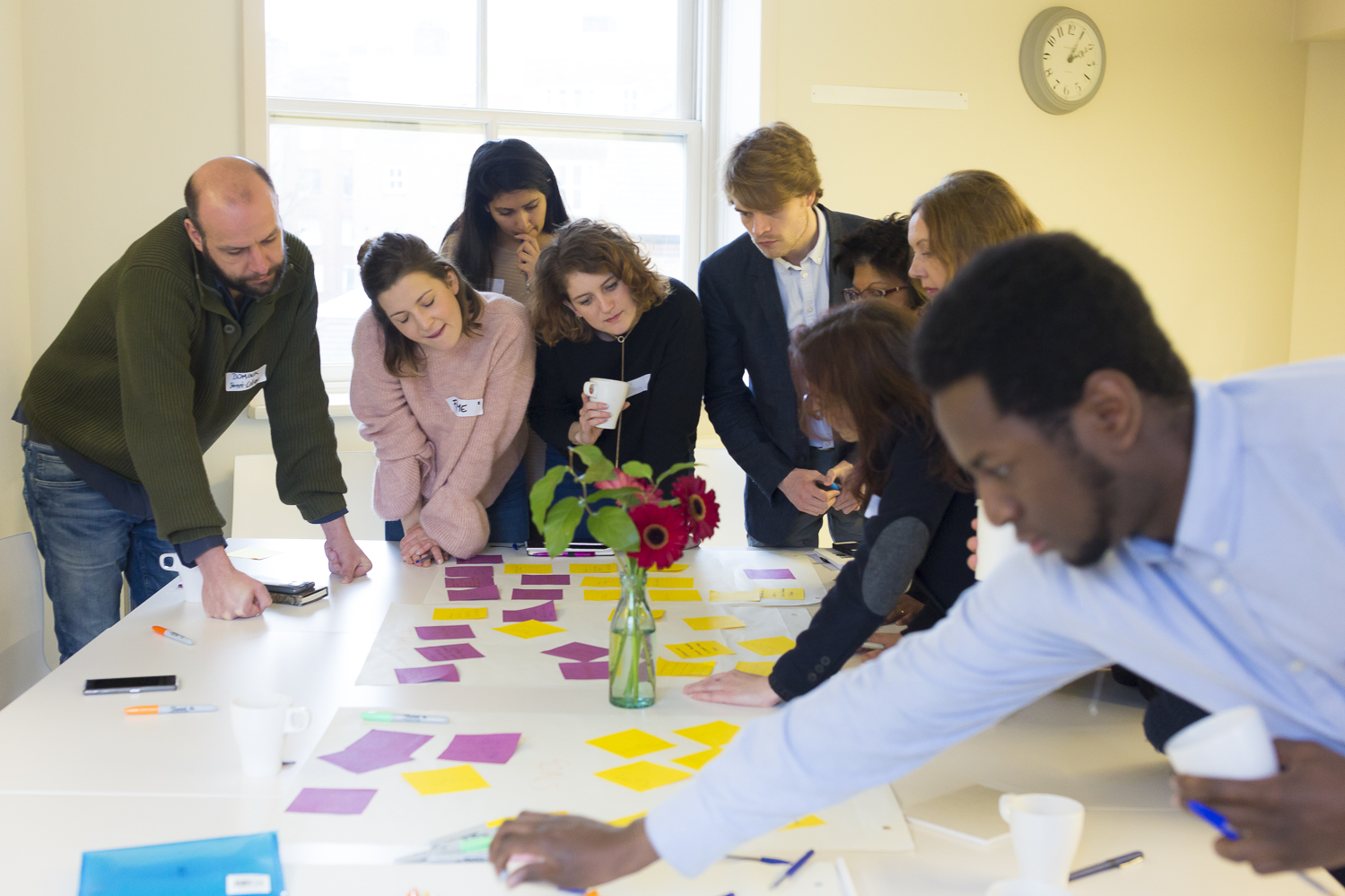
Developing peer-to-peer learning methods to help young people furthest from the labour market
Despite some European Union (EU) labour markets showing falling youth-unemployment, many young people are struggling to take advantage of new opportunities.
The Share to Know Partnership, led by The Young Foundation, a London-based independent centre for social innovation, aims to improve access to learning for these youngsters by advancing non-formal education, specifically peer-to-peer learning.
Funded by Erasmus+, the project involves partners from Stockholm (Alma Folk High School) and Berlin (Street College). All three organisations had particular experience of working with those young people who are furthest from the labour market and recognised the importance of peer-to-peer interaction in supporting employability.
Re-engaging young people
Radhika Bynon, Project Lead at The Young Foundation, explained: “There is still a high number of young people across Europe who are not in education, employment or training (NEET). This is a worrying indicator that formal education systems are failing to support young people to develop the skills and capabilities needed to get on in life and access further opportunities. Peer-to-peer learning shifts the power dynamic between ‘learners’ and ‘teachers’ and has been found to be effective at sustainably re-engaging young people who haven’t had a positive experience of formal education institutions.
“The Share to Know partners operate in very different cultural and organisational contexts but all three of us have experienced peer-to-peer learning as a powerful approach that can reduce barriers to accessing education and development opportunities for young people. Our aim was to harness the diversity of experiences and backgrounds within the partnership in order to provide insights about how peer-to-peer learning methods can be effectively implemented in a wide range of contexts.
“Over nearly three years we exchanged and tested a range of methodologies and approaches towards non-formal learning experiences and explored practical ways in which peer-to-peer learning could support personal, social and professional development. We focused on areas that we felt were particularly valuable in engaging young people most at risk of long-term unemployment, such as those who had had a negative experience of education, or who had struggled to access training or employment opportunities.”
A shared understanding
The group held six Transnational Project Meetings during the course of the 24 months and each partner hosted two meetings.
"As each of the three partners was using peer-to-peer approaches within their specific local and national context, these face-to-face meetings were crucial in helping us to come to a shared understanding," explained Radhika. "We were able to see each partner’s organisation at work and to meet learners, teachers and other staff. One key tool for this project was prototyping. Effective prototyping requires trust and confidence and the meetings played a very important role in building that trust as all partners tested aspects of each other’s methods within their own context.
We focused on areas that we felt were particularly valuable in engaging young people most at risk of long-term unemployment
As part of these events there were also meetings with local stakeholders, such as a Danish artist in Berlin teaching German to immigrants; the Stockholm City Mission; the Haringe local authority in Sweden; and representatives from local East London charities.
Radhika said: "Attendees expressed their interest in learning from our partnership's experience and how they too could apply peer-to-peer education methods directly in their work. We also ran a successful conference in London on peer-to-peer education attended by 21 organisations and attendees also reported that, as a result, they would be following-up with other practitioners, consolidating their learning about peer-to-peer working, adapting some of their activities and developing their evaluation practices. You can read more in a blog on our website.”

The effect of the project has been felt in different ways by the three partners and noted in other areas too. Street College in Germany led on the work to develop a shared understanding of how peer-to-peer is defined.
In Sweden it has strengthened the position of Alma Folk High School as a civil society organisation with valuable experience in supporting young people not in education, employment or training. It is now often invited to join discussions at the municipality and Job Centre.
Strengthened relationships
Radhika concluded: “In the UK we have strengthened our relationship with the Housing Association and trained their staff in peer-to-peer approaches, developing a tailored programme for them, specifically for the Young Mothers, engaging a group of young people who were not able to access learning in more traditional ways. We also shared our learning with Tate Circuit, a collaborative learning programme connecting young people and galleries in the UK, and we participated in each other’s conferences.”
Project successes include the creation of a Share to Know summary guide for peer-to-peer education specialists; the development of effective and engaging pedagogical methods for supporting young people’s employability and for engaging NEET young people in peer-to-peer-education; and the creation of a European network to promote peer-to-peer approaches in support of young people’s employability.
Inspired by The Young Foundations' story? Take a look at the wide range of youth funding opportunities Erasmus+ offers.
